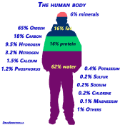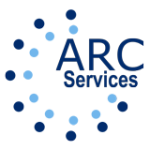The Four Stages of Drug Use and Addiction
Addiction Severity or Stages
One can categorize addiction into levels or stages. These levels apply to any drug consumption, including alcohol, pot and prescription medication.
One can find four distinct stages or levels of drug use. These include social use, regular use, risky or abusive use, and dependence. Substance Use Disorder is a new term and categorizes addiction in a broader sense. The assessment of the level of addiction deals with the impact it has on the individual’s life, functioning, and well-being.
A clearer understanding of each stage can permit one to spot and act faster to address the issue before it gets out of hand.
First Stage: Experimentation or Recreational Use
Here, the individual wants to try it out of curiosity or occasionally smokes a joint or does a line of coke. It can be any substance, hard liquor, or even prescription medication. At this level of consumption, a person is a recreational user. It is occasional, recreational, and does not interfere with daily life. A person can use drugs or alcohol without it being problematic.
But the question that you can ask is: why does a person use a mind-altering substance? The answer may reveal an impending problem. Although there are different opinions on the subject, pot and alcohol are beginning substances.

How to
Quit Crack
Drug
Overdose

Second Stage: Regular Usage
Here, the person consumes drugs or alcohol regularly. Substance use becomes more consistent and regular. It might involve occasional binging at this level, but the individual is not out of control. A key factor that can predict an addiction is that the person is often in a certain circumstance that causes them to seek to use some substance.
For example, a person may feel awkward at social gatherings or need a stiff drink after work to relieve stress.

Alcohol
Overdose
Understanding
Cravings

The Third Stage of Addiction: Risky Use
Substance use starts causing problems in various areas of life at this stage.
The individual starts to experience negative consequences but has not yet developed a full-blown addiction. It can begin interfering at work and in relationships and bring legal issues. Arrests for substance-related offences, driving under the influence (DUI), or other legal consequences can appear.
You might see a decline in performance at work or school. The person starts to segregate from family, and their circle of friends has changed.
It is a progression in substance use. It indicates a significant level of concern. Despite negative consequences and problems, the person finds it hard to control or moderate their substance use. Efforts to cut down or quit are unsuccessful. They have now lost control.
Continuing use despite its problems and negative consequences is a good indicator that a person has reached this stage.
The Fourth Stage of Addiction: Dependence
As in the stage above, individuals experiencing dependence find it difficult to control their use. Efforts to cut down or quit are unsuccessful. Usually, there is a persistent desire to use despite negative consequences. The main difference with this level of drug use is the significant time spent obtaining, using, and recovering from the substance’s effects.
The substance becomes a central focus in the individual’s life at this stage, and they start to neglect other important aspects of life. Dependence interferes significantly with daily functions, including relationships, work or academic performance, and overall well-being.
The environment or situations can trigger cravings. The need for the substance completely overrides its harmful effects and consequences.

Alcohol and
Depression
Drug Induced Psychosis

Substance Use Disorder
Substance Use Disorder replaced the term “Substance Dependence” in recent years. It is a broader term and includes various substance use degrees. Its severity level classification is mild, moderate, and severe.
It takes into consideration several criteria like impaired control, social impairment, risky use, tolerance, withdrawal, and more.
- Impaired control has to do with craving or a strong urge to use the substance. It considers failed attempts to cut down or to control consumption.
- Social problems are when substance use causes a decline in performance in major tasks at work, school or home. The person reduces or gives up social, work or leisure activities because of substance use.
- Risky use of mind-altering substances in dangerous settings and continued use despite negative consequences.
- Drug effects concern the tolerance level of the person (need for larger amounts to get the same effect) and the withdrawal symptoms the person experiences.
Addiction and What to Do About It
Addiction doesn’t affect everyone the same way; the stages mentioned above are factual and have variables from person to person. Nonetheless, it is important to evaluate a person’s consumption of drugs to get the right treatment and care.
It is advisable to take action before it interferes with everyday life functions. Too many people have lost everything because the addiction progressed without intervention. Help is essential and comes in varied forms.
Recommended reading:

Addiction Series
- Alcohol and Depression
- Alcohol, Dangers in Stopping
- Alcohol Overdose
- Addiction – Beginning
- Addiction Symptoms
- Addiction Consequences
- Drug-Induced Psychosis
- Drug Overdose
- How to quit crack cocaine?
- It’s Difficult to Quit Drinking
- Overlooking Addiction & Diagnosing Depression
- Stages of Addiction
- Quitting Weed
- The Functional “Addict” Defined
- Understanding Cravings
- What is Addiction?
- Alcohol and Depression
- Alcohol, Dangers in Stopping
- Alcohol Overdose
- Addiction – Beginning
- Addiction Symptoms
- Addiction Consequences
- Drug-Induced Psychosis
- Drug Overdose
- How to quit crack cocaine?
- It’s Difficult to Quit Drinking
- Overlooking Addiction & Diagnosing Depression
- Stages of Addiction
- Quitting Weed
- The Functional “Addict” Defined
- Understanding Cravings
- What is Addiction?
Find out more about us.

Marc J. Bernard
Author,
Substance Use Disorder & Recovery Professional,
Referral & Consultation Counsellor






